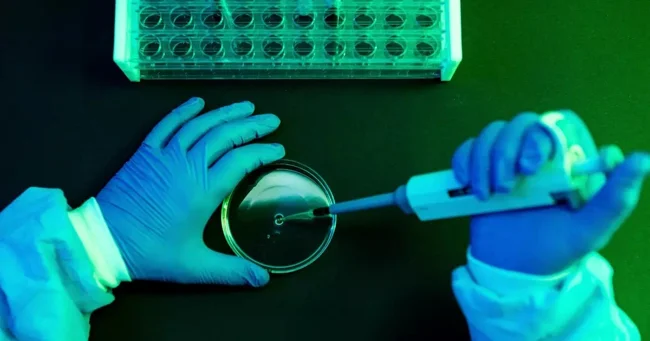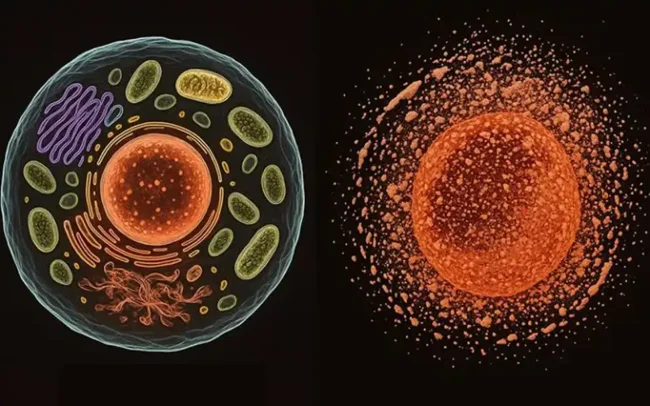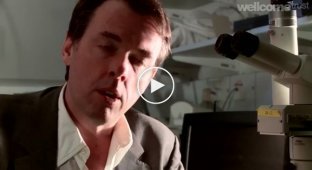Scientists have created a drug that can stop aging (4 photos)
This year, clinical trials of a new line of drugs called “antinecrotics” will begin. The miracle drug can reverse the effects of cell death. 
Cell death is a natural process. The cells inside us reach their limits, stop functioning, and die. Experts say that healthy cells can divide about 60 times before reaching their limit. At the same time, the body continuously creates new cells to make up for the deficit.
When we suffer from an infection or injury, our cells can die en masse. This phenomenon is called necrosis. It can affect bones, skin, and internal organs.
A recent study published in the journal Oncogene reveals that “programmed” cell death, which is natural for the body, is beneficial. However, “unprogrammed” cell death, or necrosis, leads to biological decline. 
As Dr. Karina Kern, lead author of the study and CEO of biotech company LinkGevity, explained, calcium is at the heart of this process.
“Calcium levels inside cells are typically 10,000 to 100,000 times lower than outside,” she explains. “Calcium is an important regulator that controls many processes in the cell. When stressed, this control is disrupted, triggering destructive responses.”
This causes the cell to rupture and release its contents into the environment, which can cause problems such as chronic inflammation, genetic instability, and even tumors.
“Necrosis has been overlooked,” Dr. Kern said. “It was thought to be just the final stage of cell death, but now more and more evidence shows that it is much more than that. It is a key mechanism that not only triggers systemic degeneration, but also contributes to its spread.”
“If we can target necrosis, it could open up entirely new ways to treat conditions ranging from kidney failure to heart disease, neurodegeneration, and even aging itself.”
That’s why the team is working on a drug that could stop necrosis at its early stages. 
Experts have reviewed studies on the effects of space flights on astronauts. They found that such missions can cause premature aging and kidney failure. In addition, experts reviewed studies in the field of regenerative medicine, oncology and kidney disease.
Professor Damian Bailey from the University of South Wales, co-author of the study and head of the European Space Agency (ESA) Biological Sciences Working Group, noted that ageing factors on Earth are enhanced by space radiation and microgravity, accelerating degenerative processes.
Kern said: “Age-related diseases that affect different organs – the lungs, kidneys, liver, brain and heart – develop due to the constant death of tissue. This often causes problems with healing, leading to fibrosis, inflammation and cellular damage. Each process triggers and amplifies the next. If we could prevent necrosis, even temporarily, the destructive processes would be stopped at their source. This would allow the body to restore normal functioning, resume cell division and, perhaps, even initiate regeneration.”
“We have been able to determine for the first time that it is possible to block necrosis, but to do this, it is necessary to block more than one molecular target,” the biotech specialist explained. “We have achieved 90% suppression of necrosis.” 
Dr. Kate Sue, co-author of the study from the UCLA Kidney and Bladder Center, said, “Antinecrotizing drugs can make tissues and organs more elastic, protecting them from injury and preventing cell death.”
Experts are cautiously optimistic and call themselves professional skeptics about the new line of drugs. Extraordinary claims require solid evidence.
“Until this data is confirmed, many will be skeptical, and rightfully so,” Sue concluded.
























